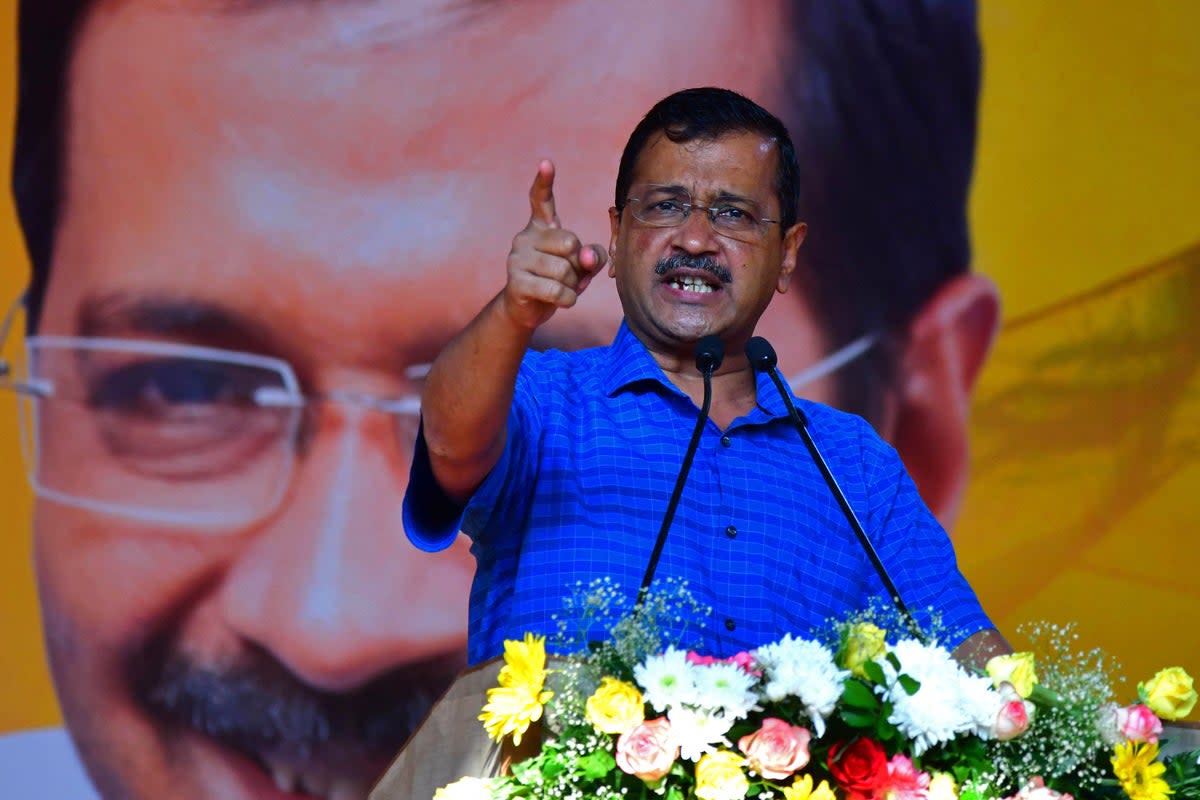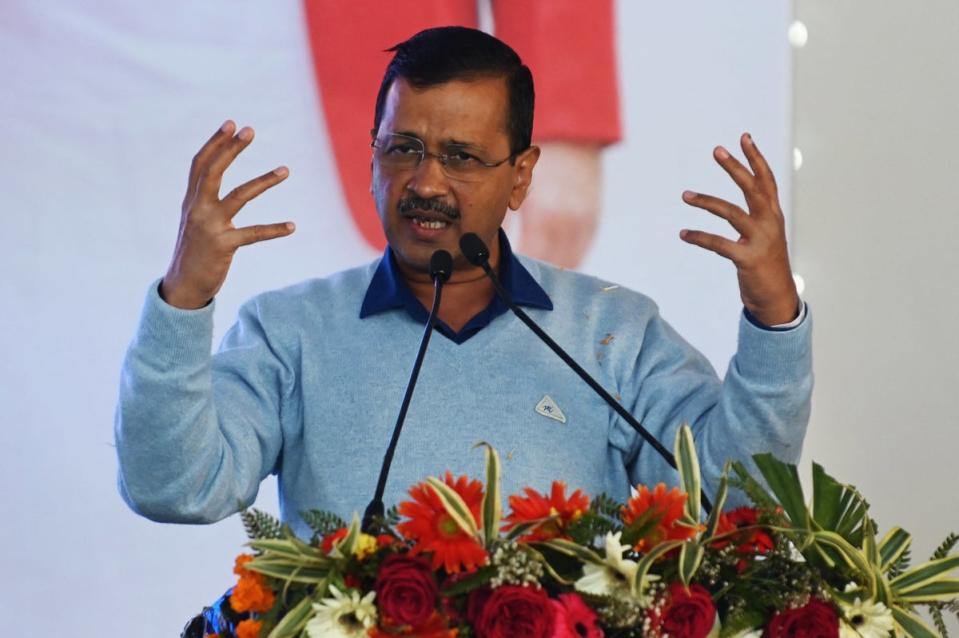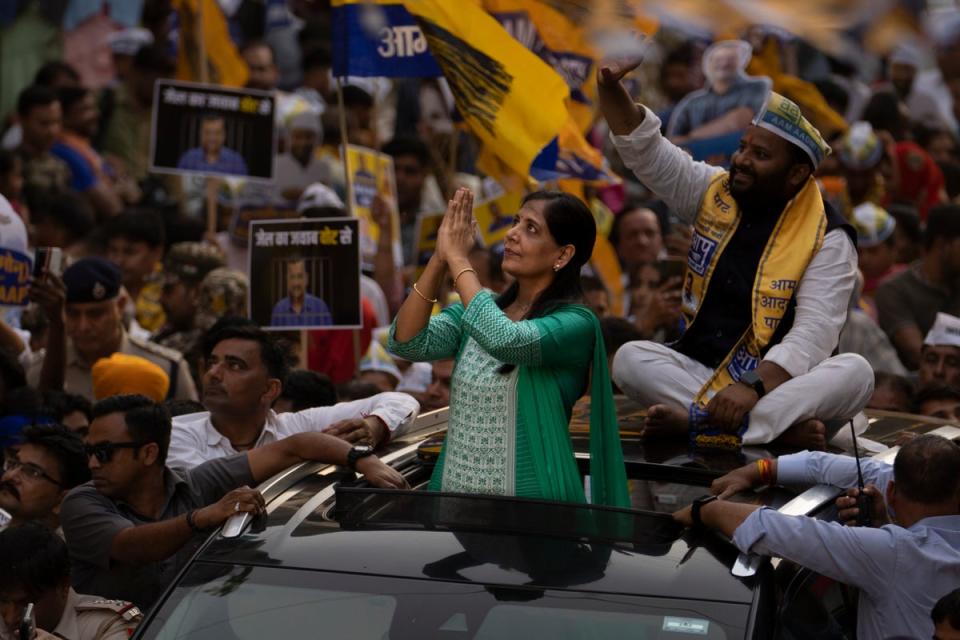Supreme Court grants bail to jailed opposition leader Arvind Kejriwal to take part in election campaign

India’s Supreme Court has granted temporary bail to jailed Delhi chief minister Arvind Kejriwal, allowing him to campaign in the ongoing national election in a major boost to the opposition alliance.
Mr Kejriwal became the first sitting chief minister to be arrested in the history of independent India on 21 March, just a month before the elections kicked off.
The arrest of Mr Kejriwal – a vocal critic and main rival in Delhi of prime minister Narendra Modi’s party – was largely seen as politically motivated, with the US State Department and Germany reacting to his detention by calling for India to follow due process.
The Indian government has denied using investigative agencies to harass Mr Modi’s political rivals, saying they operate independently.
On Friday, the Supreme Court granted Mr Kejriwal temporary bail until 1 June, the final day of voting in the world’s largest election, which is being held across seven phases.
Mr Kejriwal will have to surrender back into custody on 2 June.
The Delhi leader was arrested by the Enforcement Directorate, India’s main financial crime-fighting agency, over accusations that his party and state ministers accepted 1bn rupees (£9.5m) in bribes from liquor contractors nearly two years ago.
Mr Kejriwal and his Aam Aadmi Party have denied the charges against him and denounced his arrest as “illegal”.

The Enforcement Directorate (ED) had opposed the move to grant bail to Mr Kejriwal, saying “any special concession” to him will “amount to anathema to the rule of law and equality”.
The bench of Justice Sanjiv Khanna and Justice Dipankar Datta said Mr Kejriwal would be allowed to campaign in the election but he cannot take part in official duties during these 22 days.
The ED on Friday argued that there was no “precedent on person being released for campaigning”.
Justice Khanna responded: “Let’s not put it into a simple, straightjacket like that. We are passing the order.”
अरविंद केजरीवाल जी को अंतरिम जमानत मिलने पर सुप्रीम कोर्ट का बहुत-बहुत धन्यवाद ‼️
ये Democracy बचाने का आख़िरी मौक़ा है। सभी से अपील है कि वो लोकतंत्र बचाने के लिए आगे आएं।@PKakkar_ pic.twitter.com/WDHXYPBcQP— AAP (@AamAadmiParty) May 10, 2024
Mr Kejriwal was arrested in a late-night swoop by police on 21 March after he skipped nine summons by the Enforcement Directorate. He was the third leader of the AAP to be jailed over the party’s now-scrapped alcohol sales policy.
The ED alleges that the party favoured certain liquor barons through a policy introduced by Delhi’s state administration in 2021 in exchange for kickbacks.
His arrest sparked protests by supporters of the opposition, who called it an act of “political vendetta” by Mr Modi ahead of the election in which Mr Modi and his Bharatiya Janata Party are seeking a rare third term.

The poll has been marred by wider accusations that Mr Modi’s party is using the country’s investigating agencies to hurt rivals and stifle critics.
Mr Kejriwal’s AAP party is part of a broad opposition alliance called INDIA, the primary challenger to the BJP, and his release is being seen as a significant boost to its prospects.
A spokesperson for the Indian National Congress, another major opposition party in the alliance, said: “We welcome the intervention by the SC in granting interim bail to Arvind Kejriwal.”
West Bengal chief minister Mamata Banerjee said Mr Kejriwal’s release will be “very helpful in the context of the current elections” and that she was “very happy” with the news.
Holding a press conference after the judgement was given, AAP’s education minister Atishi, who goes by one name, said: “Today, there is a dictatorial government in this country. There is a government that is trying to finish the opposition.
“This [Kejriwal’s bail] is a triumph of democracy,” she added.


